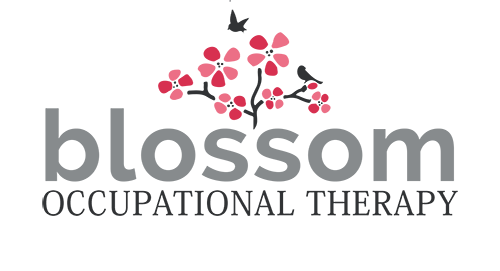At Blossom Occupational Therapy we strive for excellent quality of service, ensuring families receive value for their money.
We are confident in making this statement because we are highly experienced, resulting in focused effective intervention.
Payment is required on the day of the appointment. We accept bank transfer, or payID (0478 111 660).
NDIS
The National Disability Insurance Scheme (NDIS) is the new way of providing support for Australians with disability, their families and carers.
Blossom Occupational Therapy provide services to clients funded by the NDIS. Clients can use their NDIS funding for Blossom OT services if their funding option is self-managed or plan-managed.
MEDICARE BENEFITS
If your GP refers your child to occupational therapy as part of a team care plan Medicare provides a rebate on the cost of therapy. Usually Medicare will only refund a portion of the overall cost of the service leaving you with a gap that you need to pay yourself. In some cases families end up paying a lot for medical services in one year resulting in them reaching the Medicare Safety Net. This results in you getting a higher rebate from Medicare for therapy services. Individuals will be notified by Medicare when they approach the safety net, but families will need to register with Medicare so that Medicare know to tally their medical expenses together. For more information call Medicare on 132 011 or visit their website.
CHRONIC DISEASE MANAGEMENT PLAN
This plan provides 5 sessions with an occupational therapist per calendar year (1 January – 31 December). A referral from your GP is required. Once the initial plan has been made, the GP will not need to write a new plan each year, but may review the plan.
MENTAL HEALTH CARE PLAN
We are accredited to provide services under the Better Access to Mental Health Care initiative. This plan provides 6 session of individual occupational therapy. An additional 4 session are available following a review with the GP ( a maximum of 10 session per calendar year). It also provides 10 group sessions with an occupational therapist.
The Better Access to Mental Health care plan is available to anybody who feels that their overall wellbeing and mental health is at risk. Children may present with depression, anxiety and other behaviour problems.
Signs that your child may be depressed:
- Frequent sadness, tearfulness, and/or crying
- Hopelessness
- Decreased interest in activities or inability to enjoy previously favorite activities.
- Persistent boredom; low energy.
- Social isolation, poor communication.
- Low self-esteem and guilt.
- Extreme sensitivity to rejection or failure
- Increased irritability, anger, or hostility
- Difficulty with relationships
- Frequent complaints of physical illnesses such as headaches and stomachaches.
- Frequent absences from school or poor performance in school.
- Poor concentration
- A major change in eating and/or sleeping patterns
- Talk of or efforts to run away from home
- Thoughts or expressions of suicide or self-destructive behaviour
Signs of anxiety in a child
- restlessness or fatigue during waking hours
- trouble concentrating
- irritability
- frequent meltdowns
- easily startled, seems “on edge” for parts of the day
- Fear and avoidance of a range of issues and situations.
- Headaches and stomach aches that seem to occur when the child has to do something that is unfamiliar or that they feel uneasy about. Frequent requests to go to the sick bay when at school.
- Sleep difficulties, including difficulty falling asleep, nightmares and trouble sleeping alone.
- Lots of worries and a strong need for reassurance
- Wanting things to be perfect. For example, a child may be so dissatisfied with his/her own work that he/she will tear it up and redo it several times.
- Reluctance to ask for help. Sometimes anxiety creates an obstacle that prevents children asking for help from the teacher about a problem with learning.
- Children who ask too much for reassurance may also be overly anxious.
- Difficulty joining in. Children with high levels of anxiety may be afraid to join in class discussion, take part in sport or games or go to school camp.
- Fearful of test situations. Some children do not do as well as they can in test conditions because they are struggling with anxiety. They may also be too self-conscious to perform in front of the class.
PRIVATE HEALTH INSURANCE
Occupational therapy is covered by the major health insurance agencies under extras. Please check with your health insurance whether you are covered for allied health services such as occupational therapy.
